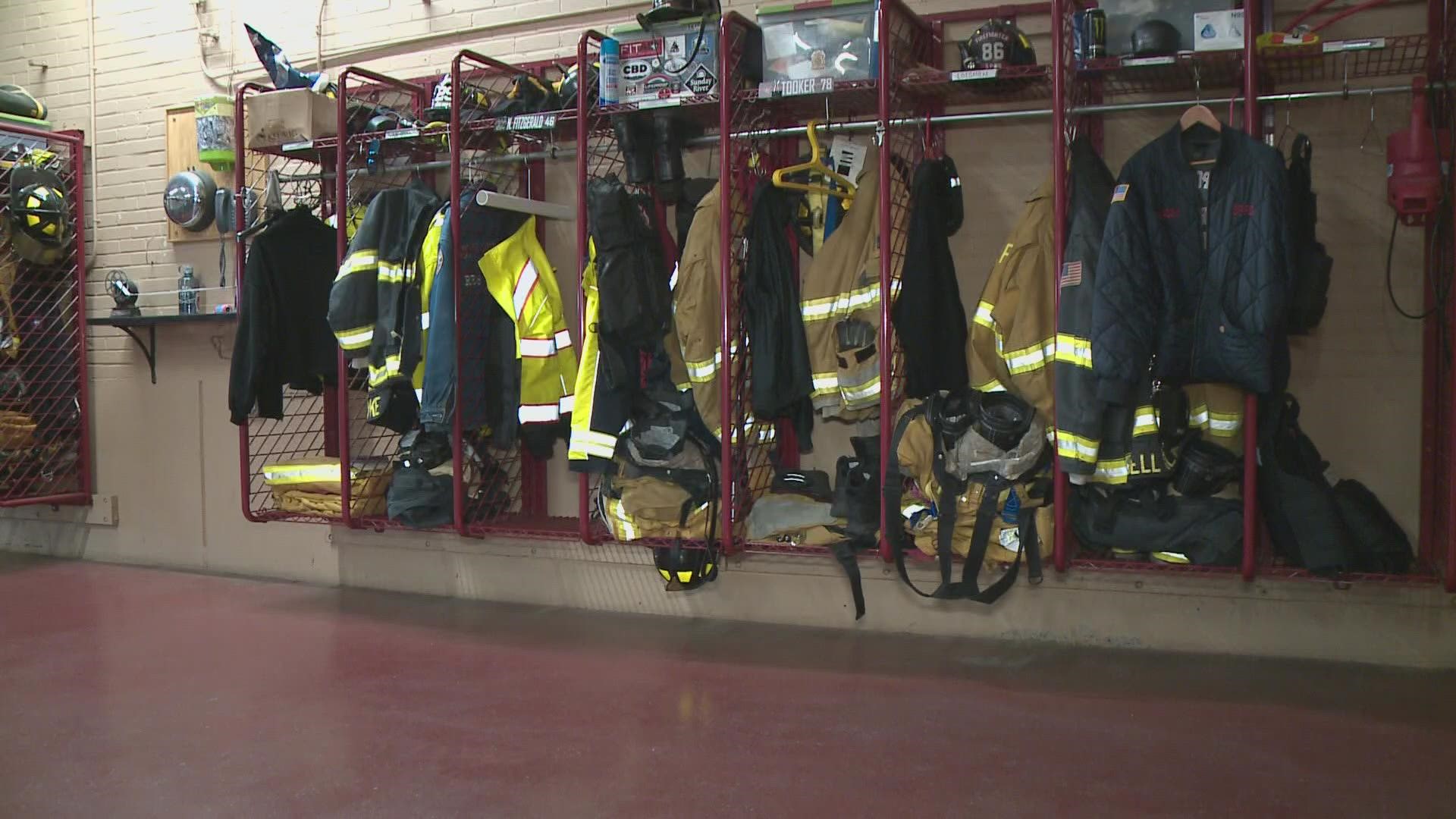SOUTH PORTLAND, Maine — From knocking down fires to putting out chemical spills, firefighters rely on their protective gear. But concerns are mounting that the very equipment that keeps them safe could be making them sick.
The gear is treated with industrial compounds known as PFAS to withstand very high temperatures.
Robb Couture is the public information officer for the South Portland Fire Department. He shows NEWS CENTER Maine the protective equipment first responders wear, known as "turnout" gear. The gear has an outer shell, a moisture barrier, and a thermal liner made to resist flames, water, and oil.
"Their biggest protection, obviously, is to protect us from thermal, from heat," Couture said.
But he and other firefighters worry about potential exposure from the very gear designed to save their lives.
"They are already in a harmful environment, so we do everything to stay safe, but for right now this is what we have," Couture said.
Firefighters from Massachusetts and New York have recently filed lawsuits claiming chemicals known as PFAS, which is used to make the gear, carry a hidden hazard linked to serious health problems, including organ cancers.
The lawsuits are seek damages from companies that make PFAS and manufacture turnout gear. The filings also cite a University of Notre Dame study that found high levels of toxic compounds in the protective equipment.
One of the defendants, chemical manufacturer 3M, told Boston.com in a statement, "We will continue to vigorously defend our record of responsible use of PFAS and environmental stewardship in ongoing litigation, including these cases."
Michael Crouse, a former Department of Defense firefighter, is the president of Professional Firefighters of Maine. The organization represents 1,400 active and retired firefighters, EMTs, paramedics, and other personnel. The organization supports efforts by the International Association of Fire Fighters on the national level to get PFAS removed from all turnout gear. The chemicals don't break down and can be absorbed into the skin.
Meanwhile, Crouse said the majority of Maine fire departments require firefighters to wash their gear after responding to a fire.
"Some of our departments are now getting to the point [where they are] requiring firefighters to have another set of gear. In case it gets contaminated, they have another set to rely on," Crouse added.
The chemicals have been linked to cancers that are more common in firefighters, including testicular and prostate cancer. Under Maine's rebuttable presumption law, 10 listed types of cancers are considered work-related for firefighters. Diagnosis, treatment, and disability are covered by worker's compensation. The union is working on potential legislation that could mandate blood testing for PFAS.
"Knowing that PFAS is out there, as part of our annual physical, you just add another blood test," Crouse said.
Couture and other firefighters have said that while the gear is doing its job, nagging questions remain, with no answers anytime soon.
For more information about health problems linked to PFAS in federal health, studies visit this website.

